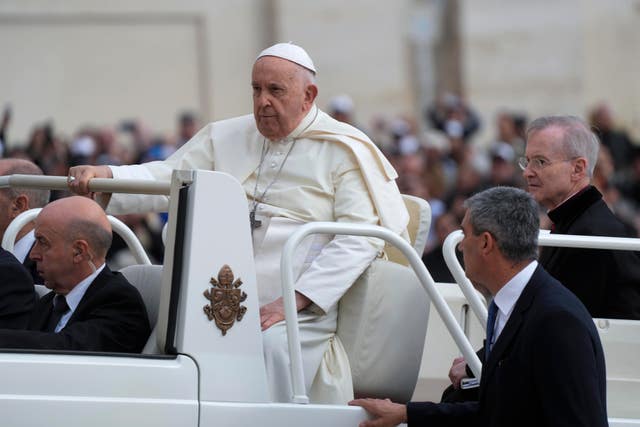
The Vatican has signed an agreement with German carmaker Volkswagen to gradually replace its auto fleet with electric vehicles as part of efforts to reduce its carbon emissions.
The announcement did not give any details on the value of the deal or set a timetable for completing the switch to electric vehicles.
The partnership falls under the Vatican’s Ecological Conversion 2030 plan, which aims to pursue sustainable, carbon-neutral projects and technologies in the city state in the centre of Rome.
Pope Francis has made caring for the planet a hallmark of his papacy and will become the first pope to address a UN climate conference when he attends the upcoming Cop28 meeting in Dubai.

Last month, in a prelude to what he will likely say in Dubai, the Argentine Jesuit issued an urgent update to his landmark 2015 encyclical on the environment.
In it, he challenged world leaders to commit to binding targets to slow climate change, warning that God’s increasingly warming creation was fast reaching a “point of no return”.
But even before Francis, Pope Benedict XVI was known as the “green pope”, in part because of his sustainability initiatives in Vatican City, which included the installation of solar panels on the main Vatican audience hall.
A statement on Wednesday from the Vatican City State administration said it was committed to pursuing net-zero emissions technologies and sustainable transport projects to reduce the carbon footprint of its vehicle fleet. Francis currently moves around the Vatican in a Fiat.
The Vatican said its partnership with Volkswagen and its Skoda brand involves medium and long-term leases, calling the carmaker its top “strategic partner for the project to renovate the state’s car park”.
The administration said it intends to gradually replace its fleet with electric vehicles by 2030, will increase the number of charging stations throughout the territory and ensure the city state’s energy needs are provided exclusively by renewable sources.


Comments: Our rules
We want our comments to be a lively and valuable part of our community - a place where readers can debate and engage with the most important local issues. The ability to comment on our stories is a privilege, not a right, however, and that privilege may be withdrawn if it is abused or misused.
Please report any comments that break our rules.
Read the rules hereLast Updated:
Report this comment Cancel